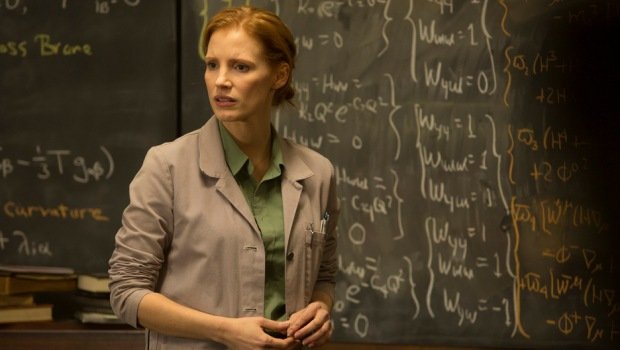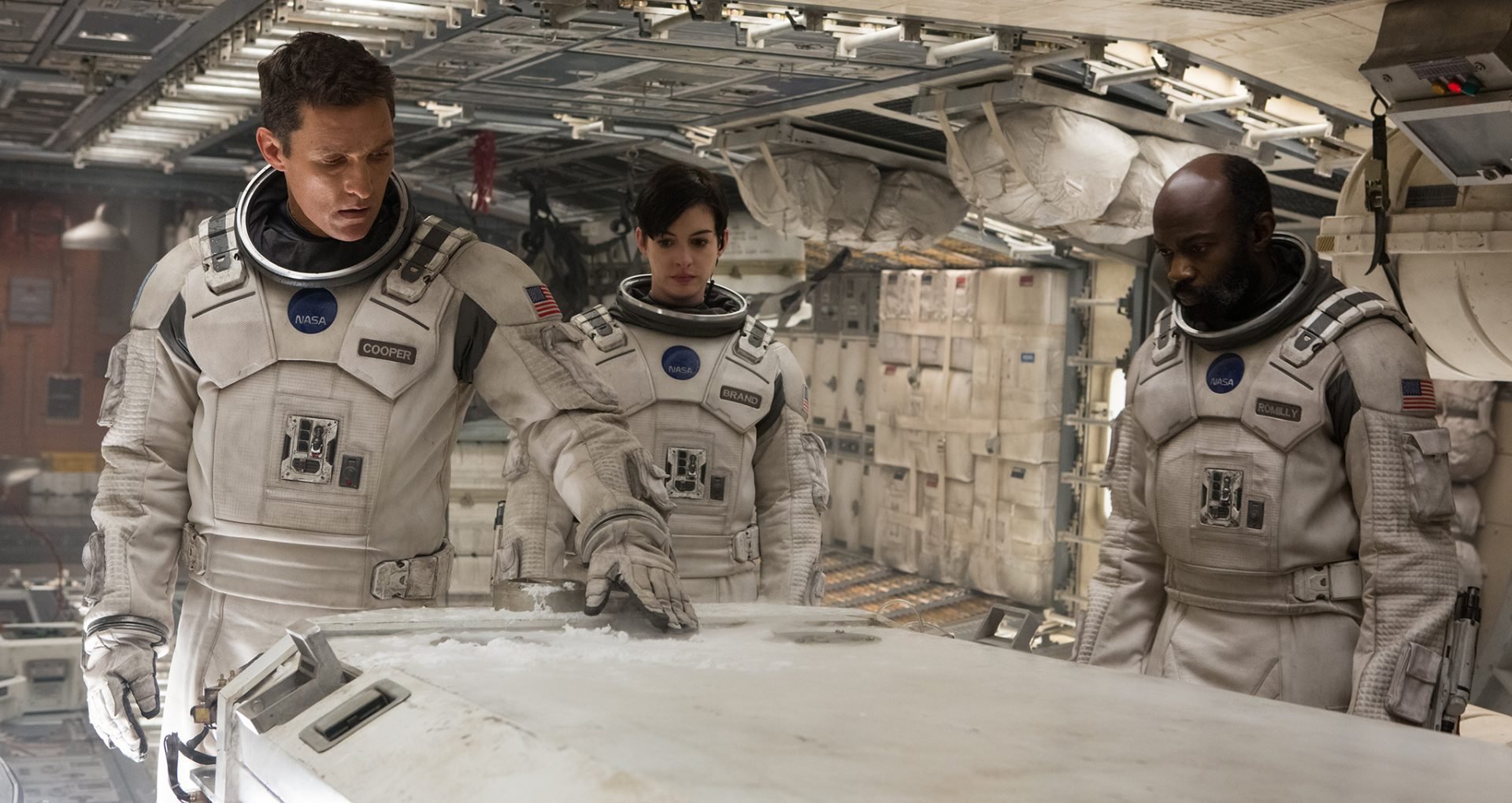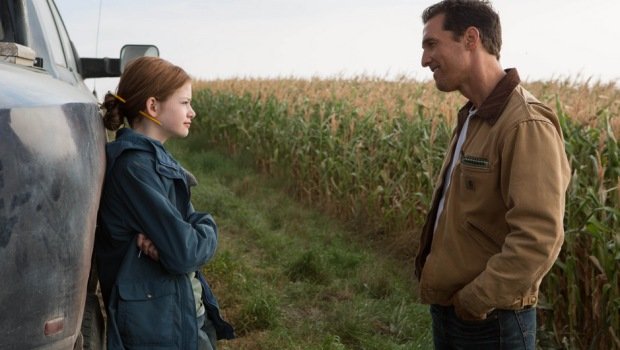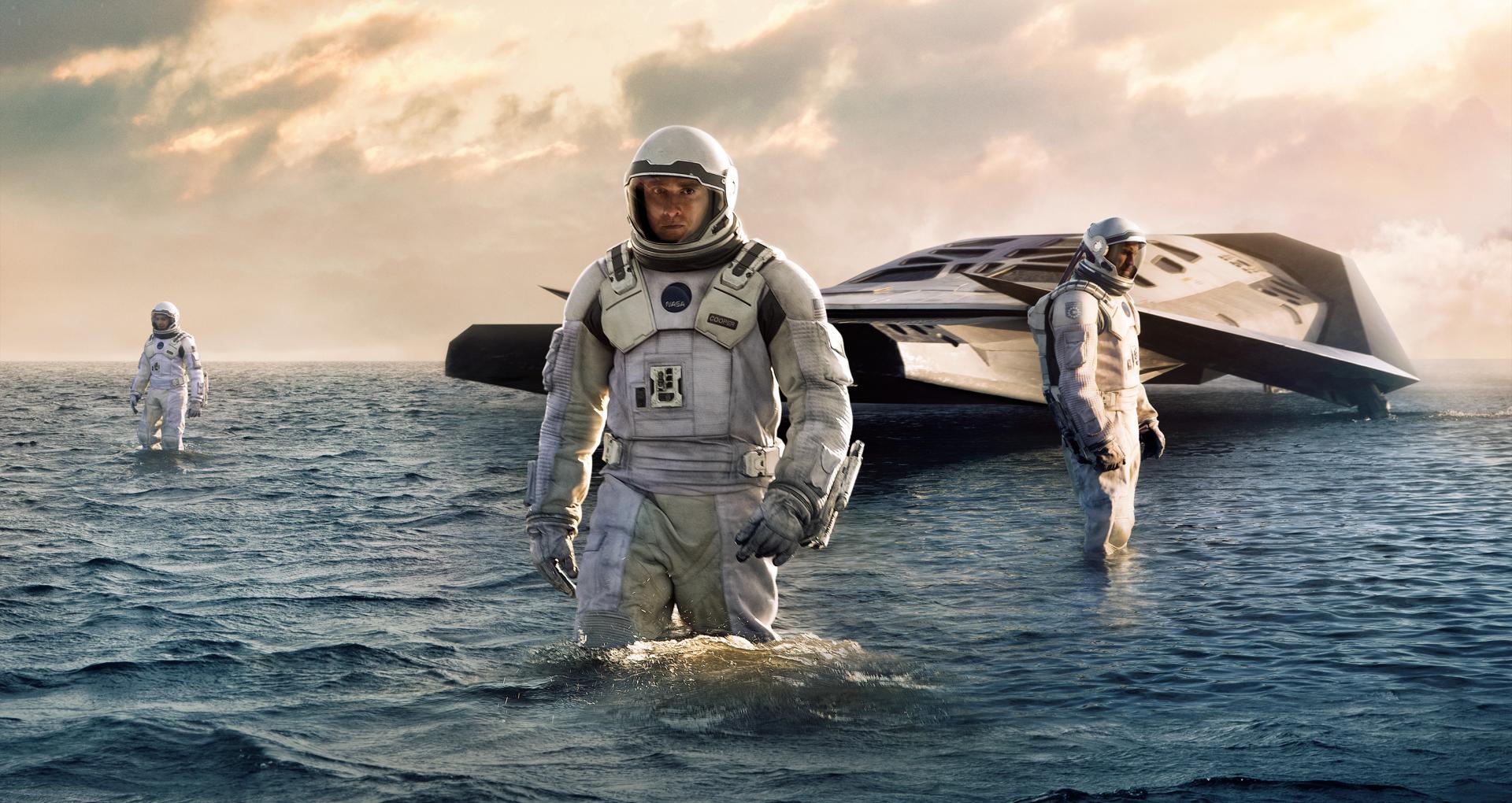Why you can trust GamesRadar+
Why Nolan’s epic failed to blip on Oscar’s radar…
Weeks prior to the first press screenings of Christopher Nolan’s ninth film, Interstellar, buzz suggested that this was the one to finally see the Brit filmmaker triumph at the Oscars. Nolan had twice previously been nominated for writing (Memento, Inception) and once for Best Picture (Inception), but had not, as yet, garnered a directing nomination.
But this was it! The rumour emanated from the hallowed halls of its studio, Warner Bros, indicating that a fistful of salt was perhaps required. But, more tellingly, it also built from the whispered ‘wows’ of a handful of directors who Nolan had trusted to show latest opus. ‘Not just cerebral but emotional’ went the murmurs – surely the Academy would at last warm to the greatest blockbuster architect of our time?
Cut to three months later and nobody seemed surprised when Interstellar was nominated for just five Academy Awards, none of them (Production Design, Score, Visual Effects, Sound Editing, Sound Mixing) the ‘biggies’. This despite Nolan’s space odyssey getting its share of five-star reviews and indeed erecting its miraculous, science-based spectacle around a legitimately beating heart. So what went wrong?

Certainly nothing in the first hour of the near-three-hour run time, as Nolan introduces the rather traditional hero of his story, ex-NASA test pilot Cooper (Matthew McConaughey), a widower raising two kids in a near-future, dust-bowl America while dreaming of the stars. This earthbound segment has a wonderful, well, earthiness to its action, with DoP Hoyte van Hoytema (Let The Right One In) cleaving to the hardscrabble protagonists in a world where crops are failing and oxygen is dwindling. Witness a $165m event picture as urgently cut, dirt-under-nails domestic drama.
Then some odd, Poltergeist-like activity that belongs in an M. Night Shyamalan movie leads Cooper to a covert NASA base housing his old boss Professor Brand (Michael Caine, naturally). With the Earth dying, Brand has been investigating the possibility of relocating the human race – a wormhole in the vicinity of Saturn has opened up (the gift of an alien species?) with the hint of inhabitable planets beyond. Cooper of course agrees to pilot a reconnaissance mission, his crew comprising Brand’s scientist daughter (Anne Hathaway), two researchers (Wes Bentley, David Gyasi) and a pair of robots.

Too often cinematic spectacle arrives with little build-up and less wonderment, intent only on bludgeoning. “We used to look up and wonder about our place in the stars, now we just look down and worry about our place in the dirt,” says Cooper, and he might be talking about today’s blockbusters. Nolan, though, has seen things in his mind’s eye that you people wouldn’t believe… and then makes converts of us all by hiring the best technicians in the business.
Be it utilitarian spacecraft Endurance gliding soundlessly through the enormity of star-speckled space or the light (and dark) show inside a three-dimensional black hole or frozen clouds like gigantic sky-glaciers or a planet with waves the size of skyscrapers, the visuals, courtesy of VFX supervisor Paul Franklin, make Gravity seem contained.
Indeed, so grand are the designs that Hans Zimmer’s score, soaring from minimal keyboard melodies to religiose crescendos via flybys on Johann Strauss and Philip Glass, feels anything but overblown. Anchoring the spectacle, meanwhile, is the heartfelt theme of fractured family that likely dates back to Spielberg’s involvement in 2006, and thorny concerns with the mutability and preciousness of time that is pure Nolan. The acting is strong throughout, with a sustained close-up on McConaughey’s face trumping the sight of even a pirouetting event horizon.

So why the Oscar snub? Well, less successful is the exposition-heavy dialogue, the repeated (three times!) quoting of Dylan Thomas’ ‘Do Not Go Gentle Into That Good Night’ by way of glorifying the human spirit, and a final act that sees Nolan and fellow scribe, brother Jonathan, conjure moral meanings and visual metaphors that require a huge leap of faith.
If you can boldly go with open eyes and heart, transcendence awaits as the Nolans offer their equivalent to 2001’s star-child; pause and blink, however, and it’s sentimental, pseudo-philosophical claptrap. It’s here that Interstellar’s failure to land with the Academy can be located – it is art’s place to provoke debate, but you don’t win awards from a 6,500-strong body if your film is divisive.
DVD extras? Zero. Blu-ray, however, offers three-plus hours of Making Of content, diced into 14 featurettes (plus an extended cut of TV special The Science Of Interstellar). Nolan’s love of the practical comes through loud and clear in the thoroughgoing emphasis on in-camera effects and use of real locations: cue shots of full-sized spacecraft props dangling on cranes, the puppetry behind robot TARS and a nose-around every nook, cranny and fold-away stool aboard the Endurance. One word of warning: with the movie’s score wallpapering pretty much all the content, you may find yourself earwormed by Hans Zimmer’s church organ.
Extras:
- Featurettes (BD)
- Booklet (Digibook)
Jamie Graham is the Editor-at-Large of Total Film magazine. You'll likely find them around these parts reviewing the biggest films on the planet and speaking to some of the biggest stars in the business – that's just what Jamie does. Jamie has also written for outlets like SFX and the Sunday Times Culture, and appeared on podcasts exploring the wondrous worlds of occult and horror.



